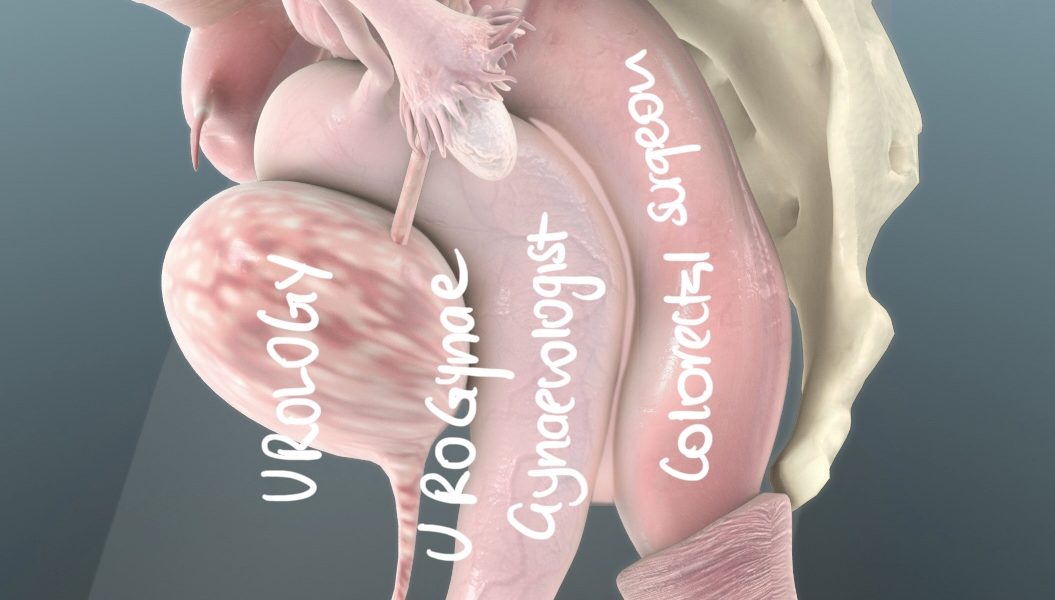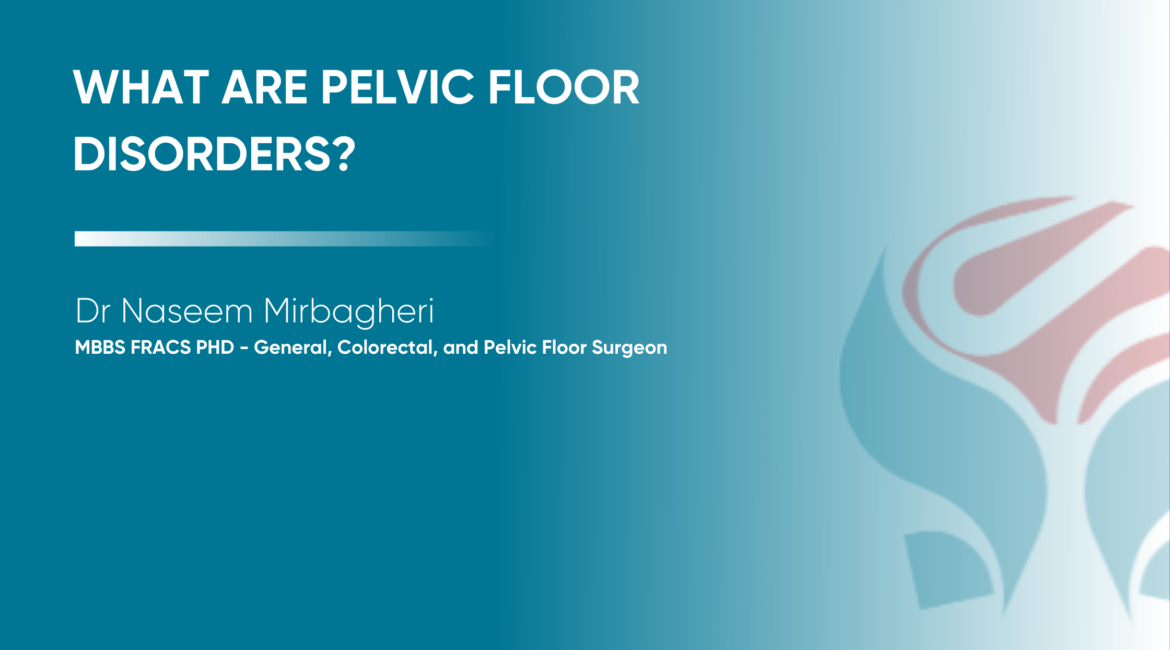
There are three groups of pelvic floor problems:
1. Urinary incontinence related to bladder dysfunction
2. Faecal incontinence related to dysfunction of the anal canal, the rectum or both.
3. Pelvic Organ Prolapse can be related to the prolapse of either bladder, vagina, uterus, the rectum or both.
Patients can be present with symptoms related to one of these categories in isolation or combination of one or more of these symptoms. Depending on your symptoms the specialist you needs to see will vary e.g.
Urologist or urogynaecologist usually manage symptoms of urinary incontinence.
Colorectal surgeons with a particular interest in pelvic floor disorders usually manage symptoms of faecal incontinence.
Bladder/Uterine or vaginal prolapse are managed by urogynaecologist and rectal (bowel) prolapse by colorectal surgeons.
Depending on your symptoms and the underlying disorder, you may need to see more than one specialist. When considering the specialist you see first, think which of your symptoms bother you the most. Sometimes, fixing one organ can have a beneficial effect on the other, e.g. patients can report improvement in urinary symptoms after their rectal prolapse is fixed.


[…] What are Pelvic Floor Disorders? There are three groups of pelvic floor problems: 1. Urinary incontinence related to bladder dysfunction 2. Faecal incontinence related to dysfunction of the anal canal, the rectum or both. 3. […]